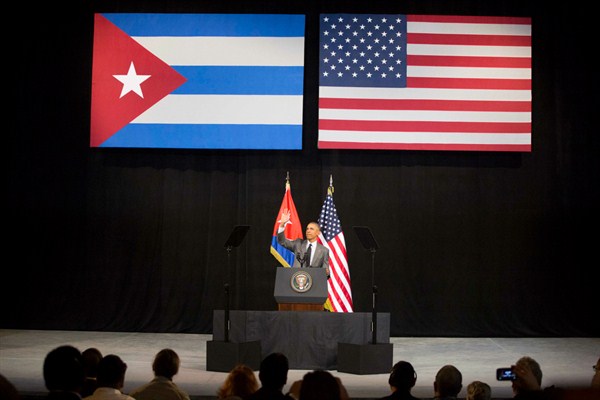One of U.S. President Barack Obama’s most significant measures to promote commerce with Cuba isn’t working. Last March, a few days before the president’s trip to Havana, Washington announced a new package of regulatory reforms loosening the U.S. embargo—the fourth since December 2014. One element of that package licensed U.S. financial institutions to process international transactions between Cuba and non-U.S. parties, so-called “u-turn” transactions. Because most dollar-denominated transactions are cleared through U.S. banks, the ban on these transactions severely hampered Cuban trade.
In fact, lifting that prohibition was at the top of Cuba’s agenda last February when Cuban Minister of Foreign Trade and Investment Rodrigo Malmierca met with U.S. Secretary of Commerce Penny Pritzker for the second round of regulatory talks. If the ban was lifted, Malmierca said, Cuba would end the 10 percent surcharge on the exchange of U.S. dollars for Cuban convertible pesos, which had been imposed to cover the transaction costs Cuba incurred trying to use dollars in foreign trade. When the March regulatory reforms lifted the prohibition, Cuban Foreign Minister Bruno Rodriguez announced that Cuba would lift the surcharge, if the regulatory change was effective.
Unfortunately, it has not been. Although U.S. banks can now legally process Cuban transactions with non-U.S. parties, the banks are refusing to do it. In the past, the United States has levied enormous fines on international banks for processing Cuban transactions in violation of U.S. sanctions. In 2004, UBS was fined $100 million; in 2009, Credit Suisse was fined $536 million; in 2010, Royal Bank of Scotland paid $500 million in fines, and Barclay’s paid $298 million; in 2012, ING Bank was fined $619 million, HBSC $1.9 billion and BNP Paribas a record $8.83 billion. Even after December 2014, France’s Credit Agricole was fined $787 million. At least half a dozen other banks were fined smaller amounts, and dozens more were under investigation.

